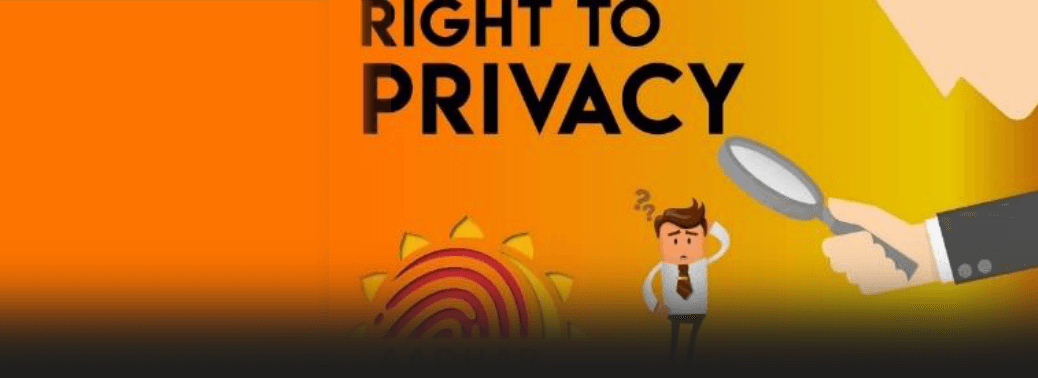PRIVACY IN THE AGE OF SUNSHINE LAWS
06, Apr 2019

Prelims level : Polity and Governance
Mains level : General Studies- II: Governance, Constitution, Polity, Social Justice and International relations.
Why in News:
- A Constitution Bench of the Supreme Court has finally concluded hearing a crucial appeal whether judges are required to publicly disclose their assets under the RTI Act. This provision prohibits the sharing of personal information that has no nexus to public activity or which amounts to an
- unwarranted invasion of privacy unless the larger public interest justifies such a disclosure.
Background:
PUCL (People’s Union of Civil Liberties) Case 2003:
- Voters have a fundamental right to know relevant qualifications of candidates for office, including information about their income and assets. Accordingly, a section of a law stating that candidates could not be compelled to disclose any information about themselves other than their criminal records was unconstitutional.
Lok Prahari Vs Union of India (2018) Case:
- The verdict on a petition filed by the NGO, Lok Prahari, SC ordered one more directive for further refining the electoral process.
- The SC has asked for the additional disclosure of income source by aspiring candidates. The Centre has been asked to legislate on the same, along with the mandating the disclosure of wealth of the candidates, their spouse and dependants.
- Further, SC has vouched for a permanent mechanism to investigate any disproportionate increase in the assets of lawmakers while in office.
- The court has also stressed that non-disclosure of assets and their sources would amount to
- “corrupt practice” under Representation of People Act, 1951.
- As the order might be perceived as judicial overreach into the law-making arena, the court has asked the parliament to legislate on its directives.
- Section 44 of the Lokpal Act, 2013, which requires all public servants (this includes judges) to disclose their assets but is silent on whether the disclosure should be to the competent authority or the general public Girish Ramchandra Deshpande VS Central Information Commissioner
- The Supreme Court ruled that the assets of the bureaucrat could not be revealed to an applicant under the RTI Act unless there was a showing of a larger public interest. The applicant could not demonstrate the larger public interest and was denied the information.
RTI ACT,2005:
The basic objective of RTI is,
- Empowerment of the
- Promotion of transparency and accountability in the functioning of the
- Prevention and elimination of
- Making the democracy work for the people in its real
- An RTI portal is created by the Ministry of Personnel, Public Grievances and Pensions in order to facilitate the process of RTI. Besides access to information related to RTI, published disclosures by various public authorities under the state and the central governments, it acts as a gateway for obtaining information on the details of first Appellate Authorities, Principle Information Officers etc,
- Every Public authority is obligated to maintain a computerised version of all the records in a manner that could be accessed over a network at any place within the country by issuing it to the person on his/her
- Various channels need to be frequently updated by the public authority so that the use of RTI Act to seek information can be kept to a bare
- A written or electronic request must be placed by a person seeking information under the RTI No reason shall be sought from the person placing the request except the contact details in case the authorities would have to contact him/her. However, the authorities are not obligated to provide any such information that is received under confidence by a foreign government, cabinet papers, information forbidden to be shared by the court of law, information that could potentially hurt the sovereignty and integrity of India.
Under the RTI, every citizen is empowered to:
- Seek information / ask questions to the government.
- Request for copies of government documents., Inspect government documents and works. Request for samples of materials of any government work.
Right to Privacy:
- The right to privacy is protected as an intrinsic part of the right to life and personal liberty under Article 21 and as a part of the freedoms guaranteed by Part III of the Constitution.
Implications:
- The litigation and the civil society campaign against Aadhaar resulted in a unanimous judgment from nine judges of the Supreme Court declaring informational privacy as a component of the fundamental right to privacy.
- When the Constitution Bench decides on Mr. Agrawal’s appeal, it will most likely be viewing the privacy right enshrined in Section 8(1)(j) of the RTI Act through the lens of the Aadhaar judgment.
- If the Bench decides that all Supreme Court and High Court judges have a fundamental right to privacy (only two of the five judges hearing the case have voluntarily disclosed their assets) and that judges cannot be forced to disclose their assets to the public, questions will be asked as to why the court forced politicians to publicly disclose their assets and sources of income.
- It would then be only a matter of time before politicians and their spouses seek the overturning of the PUCL and Lok Prahari judgments, thereby turning back the clock on electoral transparency.






